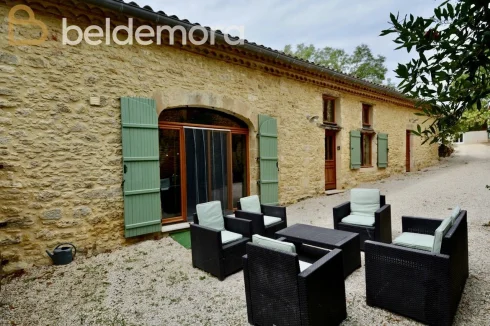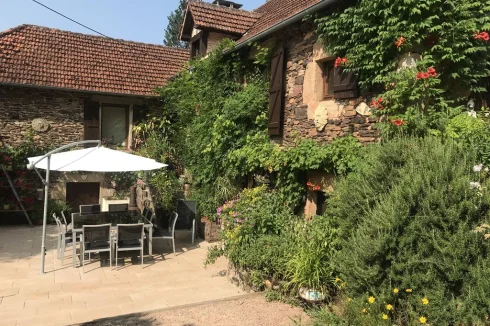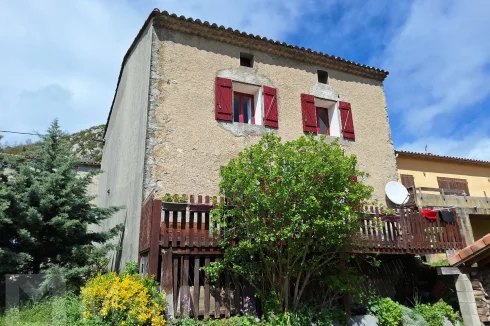Free Roof Insulation to your French Home
Friday 07 February 2020
Eligible homeowners in France can get their roof space insulated for a symbolic €1.
In the quest for conserving energy and reducing heating costs, since 2019, grant assistance has been in place to help homeowners insulate their homes.
The scheme is called the ‘Coup de pouce Isolation’, for roof and loft space and lower ground floor insulation.
The grant is available for works on a primary, secondary or rented property, provided the owner is resident in France.
In the case of roof or loft insulation on an apartment, the work will first need to be agreed by all occupants in the building.
UPDATE: April 2021 - The scheme now restricted to low to middle income households and with a lower level of assistance, and will be abolished from 1st July 2022. Until then the rates per m2 have been reduced to €12m2 for low income households and €10m2 for others.
Eligible Households
All households are eligible, but the level of the grant is subject to means-testing.
Those households whose income does not exceed the income threshold below are entitled to the maximum grant, and for those above it a lower level of assistance is given.
The maximum revenue ceilings for full entitlement differ according to whether the property is in the Île-de-France region or provinces, and on how many people are living in the household, as follows, from April 2020:
| Household Size | Île-de-France | All Other Regions |
| 1 | €25,068 | €19,074 |
| 2 | €36,792 | €27,896 |
| 3 | €44,188 | €33,547 |
| 4 | €51,597 | €39,192 |
| 5 | €59,026 | €44,860 |
These amounts are the 'revenu fiscal de référence' (benchmark taxable income) that is indicated on your most recent income tax notice. Where the property is tenanted it is the income of the tenant that is used in the means test.
Level of Assistance
The level of financial support for loft or roof insulation for such households is equal to at least €20 per m² of isolation laid. It is €30m² for floor insulation.
In practice, this means that most households who do not exceed the maximum income threshold will pay the symbolic €1 for the works.
However, that is not always going to be the case, particularly where it is necessary to lift and replace attic floorboards.
For those households above the threshold the assistance is still available, but at the rate of €10m² for roof insulation (and €20m² for floor insulation).
The assistance can be received as either a bank transfer or cheque, as a deduction from the final bill, or in the form of a voucher for buying the relevant materials/ products.
Other conditions that apply are that:
- the property must have been built at least two years prior to the application being made;
- the work must be carried out by a professional who is recognised as Reconnu Garant de l'Environnement (RGE), the label awarded to approved contractors;
- the equipment and materials used must obtain a minimum level of energy saving.
In addition, you should not sign off a quote before confirmation of eligibility has been received.
Application Process
There are many advertisements on social media offering this service and asking you to ‘test your eligibility’.
Beware of completing a large number of these as companies may sell on details and in some cases this could lead to endless phone calls and emails.
The scheme is offered via the main energy companies, such as EDF, Total, Sonergia, Leyton, and Inovia, who are signatories to an agreement with the government. Nevertheless, the level of participation by the companies, other than EDF, is weak.
The first step is to contact one of the energy companies by phone or by completing one of the online forms to test eligibility.
The company will then check your eligibility, as part of which you will be required to produce relevant documents, notably your income tax notice as well as utility bills as proof of address.
Once you receive confirmation of eligibility, you can seek quotes for the work from a contractor.
The contractor must have the required RGE accreditation, meaning they are approved to carry out the work. You can find a list of contractors with this accreditation at Trouver un Professionnel.
To properly understand what is required a site visit by the contractor is really needed, so do not accept a quote without a visit from them. Unfortunately, one affect of the grant has been to increase prices so be vigilant. Ultimately, it is also all consumers who pay for it, in the form of higher prices for energy.
The supplier/contractor will need to know the size of the space, the age of the property, and the type of material and work required.
The material proposed for the insulation is generally fibreglass or rock wool. Cellulose wadding may also be proposed but be aware that this material is not non-combustible.
When you have accepted a quote, it will need to be sent back to the charter signatory and approved by them. The quote will need to state the date of the visit, and the type of insulation and quantity of material required.
Once works start you will need to remain vigilant. Thus, for example, when the insulation is inserted check that it is at least 30cm thick and in most cases, a metal border should be used where the insulation meets the roof.
Some of the energy companies organise both a pre-inspection and a post-inspection.
The works may also be subject to post-inspection by the authorities, to verify it has been undertaken and that the quality of the work meets the required standards.
To obtain more information about this offer contact your local ADIL (Agence départementale d'information sur le logement), the departmental agency for information about housing, or consult the government energy works advisory service. You can of course also go direct to the energy suppliers.
Other Assistance
The assistance is cumulative with other forms of support from the national housing agency ANAH, as well as the income tax credit at 30% for energy conservation (Credit d’Impôt pour la Transition Energétique - CITE). An interest free credit loan of €30,000 for eco-works with l’Éco-PTZ (Éco- prêt à taux zero) may also be available.
It is also possible through this scheme to obtain assistance with replacing an oil or gas boiler by equipment using renewal energy, as part of the wider Certificat Économies d’Énergie (CEE) programme of which roof and floor insulation form part.
Thank you for showing an interest in our News section.
Our News section is no longer being published although our catalogue of articles remains in place.
If you found our News useful, please have a look at France Insider, our subscription based News service with in-depth analysis, or our authoritative Guides to France.
If you require advice and assistance with the purchase of French property and moving to France, then take a look at the France Insider Property Clinic.





